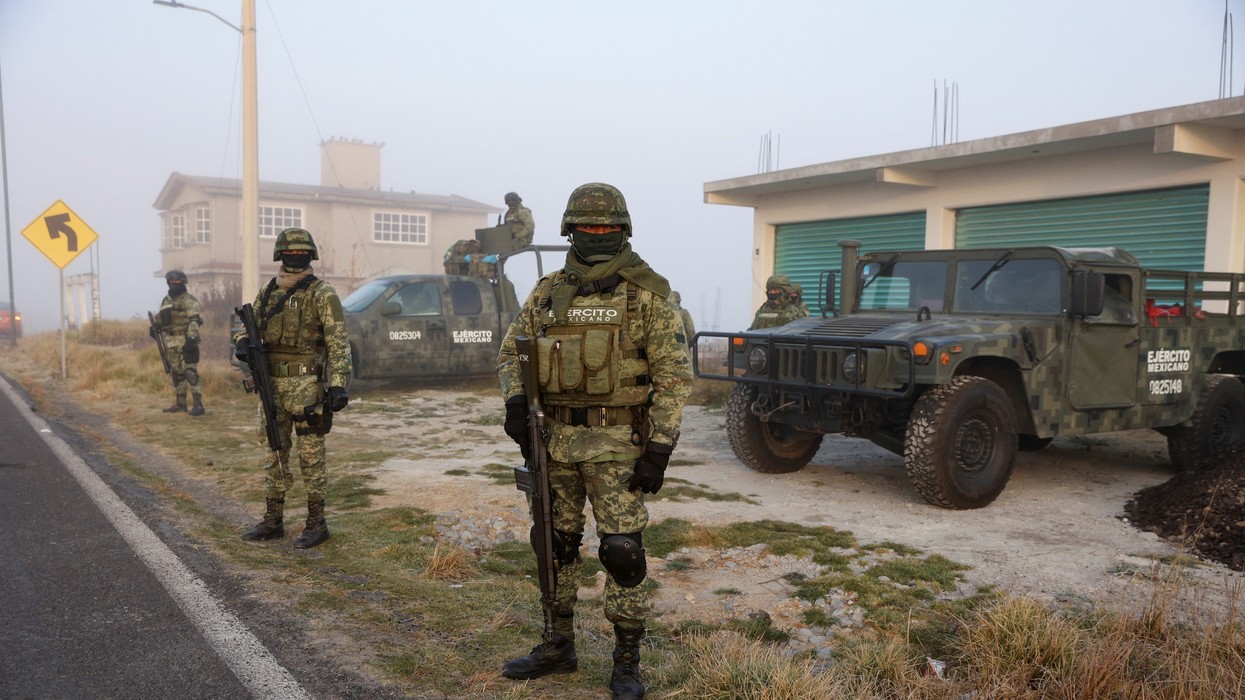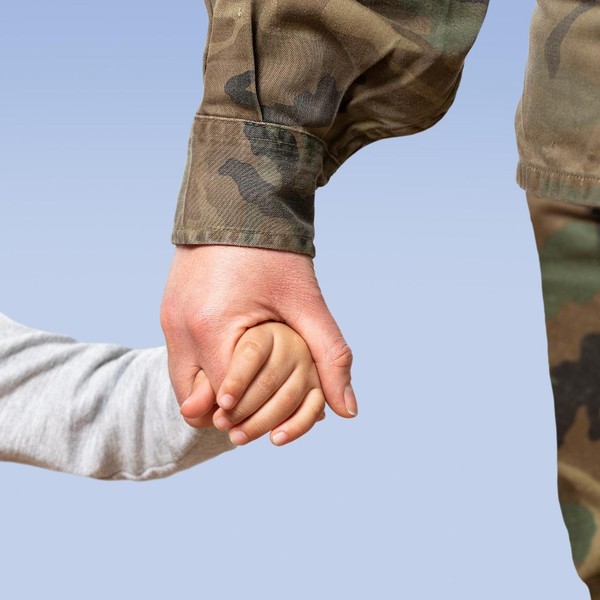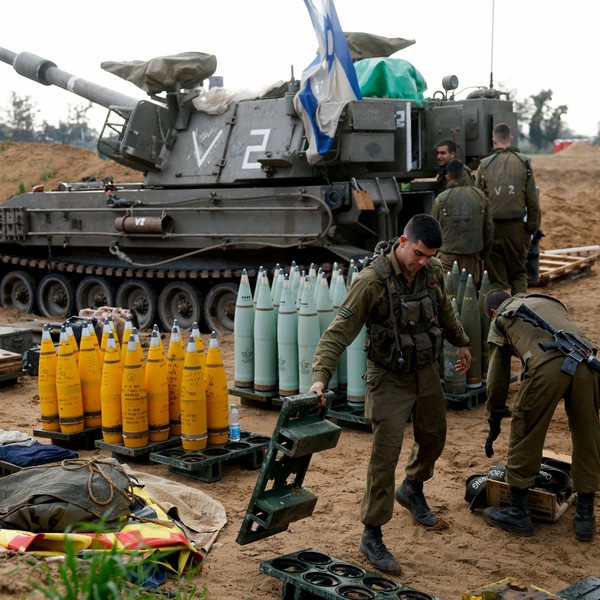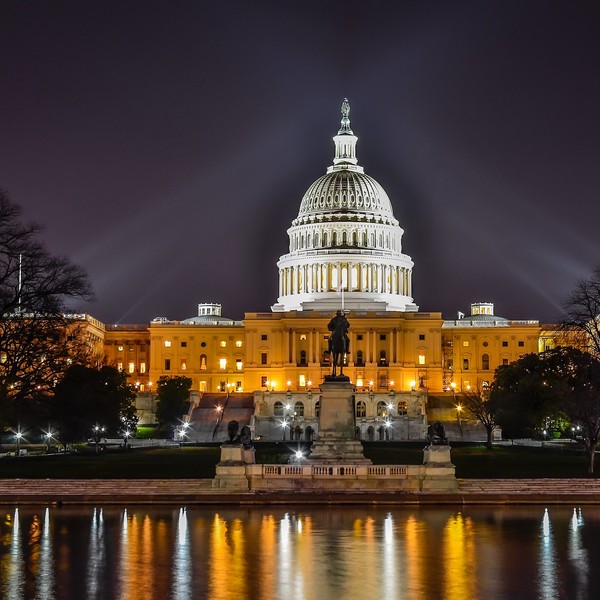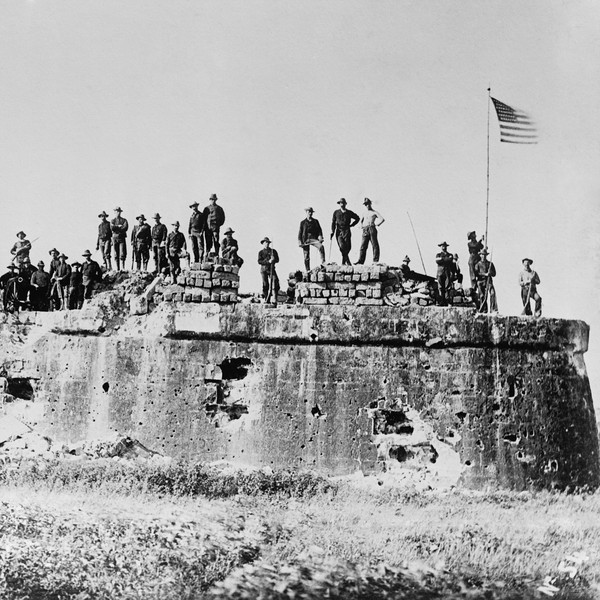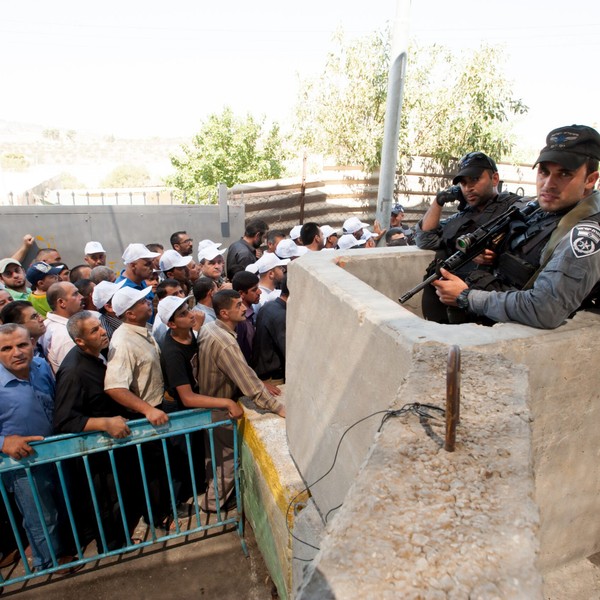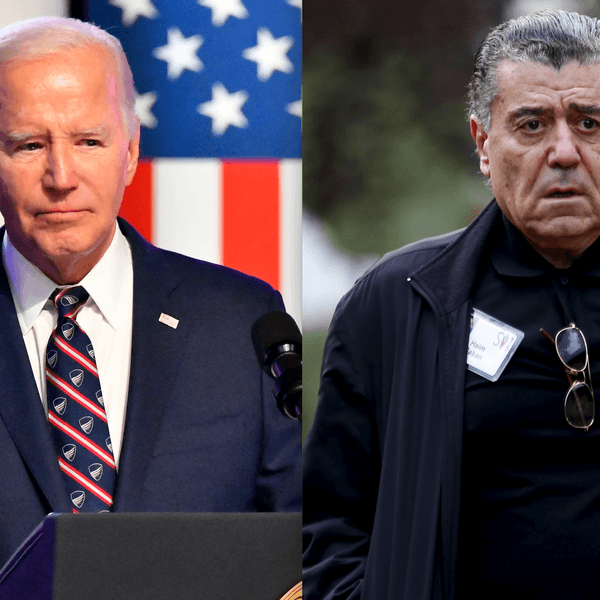This is part of our weeklong series marking the 20th anniversary of the U.S. invasion of Iraq, March 20, 2003. See all of the stories here.
Most Americans born in the late 1990s don’t have any memories of the war in Iraq. If they do, they are most likely limited to the last few years of the war, after the emotions of post-9/11 patriotism, debates over WMD, the troop surge of 2007, and once the war already seemed endless with a growing sentiment that it had been a mistake, even if its primary architects were never held accountable.
“The Iraq War was something that was always true. There were always American troops in Iraq. It was like health care, taxes, and Iraq,” says Patrick Fox, who was born in 2001 and is now a program assistant at the John Quincy Adams Society, a national network of professionals and students focused on restraint in U.S. foreign policy.
“My earliest strongest memory of conflict [in Iraq] was really in the aftermath of U.S. troops pulling out. I think it was in 2014, when the Islamic State was massively gaining ground,” William Waghorne, a freshman at Syracuse University who was born one year after the U.S. invasion, told Responsible Statecraft. “Even that (event), most people my age weren’t that much interested in it.”
For Generation Z — a demographic cohort generally observed to have been born after 1995 and colloquially known as “Zoomers,” — “the invasion sits firmly in the past, as a part of history,” in the words of Andrea Stanton, an Associate Professor of Islamic Studies and Digital Religion at the University of Denver.
And yet, Gen Z’ers appear to generally share an opposition to military intervention and skepticism of American exceptionalism with millennials, the generation whose formative years coincided with 9/11, and the start of the wars in Iraq and Afghanistan.
“With little or no recollection of the attacks on American soil, and after watching the failures of America’s wars in Iraq and Afghanistan, young Americans appear to be less supportive of military solutions for international challenges, especially compared to older generations,” reads a 2021 report from Eurasia Group Foundation on public sentiments on foreign policy.
While public opinion polling concerning foreign policy can be fickle and difficult to interpret, a number of studies show similar trends about this demographic’s views of their country’s role in the world: Young Americans want the United States to remain active in global affairs, but prefer that the engagement not be military in nature. They do not view their country as a world leader to the same degree as older generations.
This is partly the result of many of the most pressing challenges that young Americans face and will continue to confront — financial crises, domestic polarization, the growing threat of climate change and the ongoing effects of a deadly pandemic — not being of a military nature and requiring internal fixes or international cooperation, rather than military conflict, to solve.
But it may also be the result of the legacy of the war in Iraq and other foreign misadventures, and the fact that Gen Z has never known a world in which the U.S. was not at war in the Greater Middle East. “There is a sense that this [referring to the U.S. being at war in the Middle East] has been going on forever,” says Natalie Dowzicky, an editor at Reason magazine who was born in 1996 and has previously written about Gen Z’s foreign policy views. “There is this hesitation among the younger generation, that we should be more thoughtful before we get engaged in something where we don’t really have a clear strategy.”
Zuri Linetsky, a research fellow at the Eurasia Group Foundation, notes that his organization’s polling shows that younger Americans tend to oppose increasing the Pentagon budget and overseas troops deployment more than other generations, which may be a result of the questions that rose out the war in Iraq, like: “Why are we here? Why are we still paying for it?,” Linetsky told RS. Even if Gen Z did not witness the run-up to the Iraq War, he says, they still lived through “the domestic consequences of it. Which I think then gets put out into the world as less defense spending, fewer troops abroad, and more interest in looking inwards.”
A 2019 poll from the Center for American Progress asked members of five different generations to grade the statement “The wars in the Middle East and Afghanistan were a waste of time, lives, and taxpayer money, and they did nothing to make us safer at home,” on a scale of 1 to 10, with 10 indicating the strongest agreement. With a score of 6.9, Gen Z agreed with the statement more than any other generation.
Another after effect of the war has been rising distrust in American institutions. A 2004 Reuters/DecisionQuest poll showed that lack of trust had reached an “epidemic” level. The poll showed that a 34.6 percent plurality of respondents named the Iraq War as the specific factor causing an overall loss of trust, 20 percent higher than the next most popular answer. Other polls taken since show that confidence in these institutions has never recovered.
A number of young people with whom I spoke who consider themselves broadly anti-war linked their worldview to a lack of faith in American institutions, and recent polls from Morning Consult found that Gen Z trusts every institution, with the exception of the scientific community — including Congress, the media, and the military — less than any other generation dating back to Baby Boomers.
"When you have these kinds of unending wars, and all of the instruments of the state are pushing you that way, then you get this clapback,” says Linetsky.
Even if Gen Z has so far expressed lower support for military intervention, due in part it appears, to the aftermath of the Iraq War, it’s possible that they have yet to experience the events that will most shape their worldviews. For Zoomers, the Iraq War does not fall into the so-called “critical period,” between one’s late teens and early 20s, in which studies suggest personal political attitudes and worldviews are often cemented.
There are consistent efforts among official Washington to ask how to shore up the legitimacy of America’s large role in the world. There is a persistent emphasis on issues — from support for Ukraine’s defense against Russian aggression to competition with China — that can make American power seem to have a purpose.
As Iraq moves further into the rearview mirror, there is an attempt to forget or ignore the catastrophe that it was. “There are people who lived through Iraq who don’t want to talk about Iraq,” says Linetsky. And so he fears that we may be “destined to relive this crisis over and over again in one way or another.”



